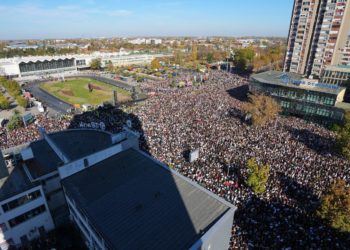A harder civics test. Stricter social media vetting. Neighborhood investigations into people’s “moral character.”
The Trump administration is erecting new hurdles for lawful permanent residents applying for U.S. citizenship, part of a broader effort to tighten an immigration system that federal officials say has become too lax. Officials are reviving old vetting standards and adding new requirements that emphasize cultural assimilation and more aggressively screen applicants for “anti-American” views.
Joseph Edlow, the director of U.S. Citizenship and Immigration Services, recently said he was “declaring war” on anyone who wants to naturalize but “doesn’t want the responsibility of what it means to actually be a U.S. citizen.”
Some immigrant advocacy groups contend the moves are meant to discourage people from applying for citizenship and to raise the bar in a way that would reduce the number of naturalized citizens, or immigrants who were approved for citizenship as opposed to people who gained it via birthright. They worry that the anti-American label could be applied to those who disagree with the administration on matters such as the war in Gaza. The changes are stoking fear among immigrants who want to apply but are hesitant to reopen their cases and invite greater scrutiny from immigration authorities, according to legal advocates and groups that teach citizenship classes.
They say the process to obtain citizenship was already fair. To become a citizen, people generally have to have a green card for several years, submit an application, pay a fee, complete an interview with a Citizenship and Immigration Services officer, pass a background check as well as English and civics tests, and take an oath. Those who marry U.S. citizens can apply sooner after obtaining a green card.
The post Under Trump, Becoming a U.S. Citizen Gets Harder appeared first on New York Times.




